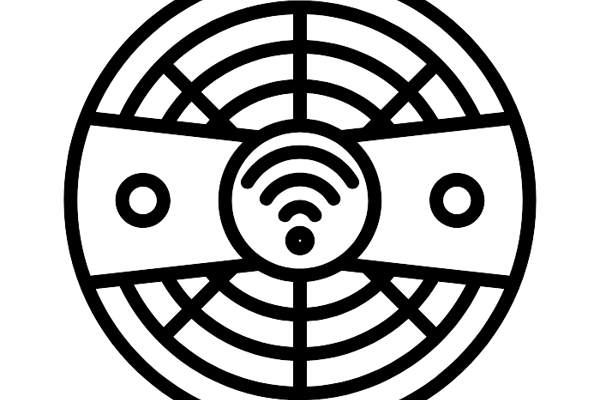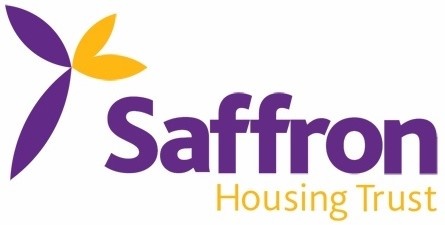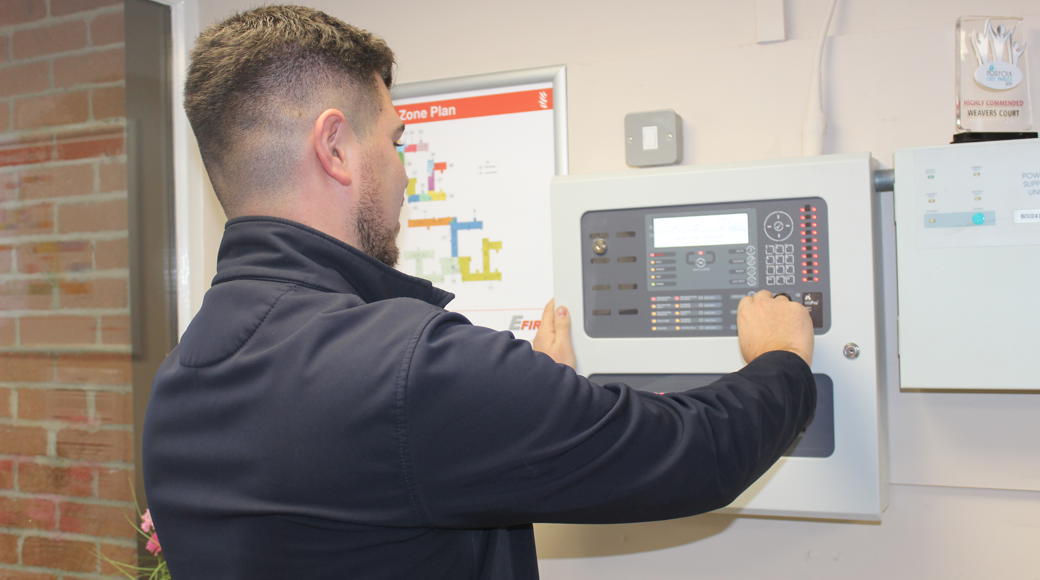Important information about Carbon Monoxide
We’ve been made aware that there are some dangerous trends on social media about using aluminium foil gas burner covers and standard kitchen foil to keep gas hobs clean. They can restrict the airflow and lead to the release of Carbon Monoxide (CO) - known as a silent killer as it’s not detectable.
Find out more
We have some short videos (which you can find by clicking on other topics below) and a fire safety leaflet with information to help keep you and your neighbours safe.
Download our Fire Safety in Flat Blocks leaflet by clicking here.
All tenants who live in blocks of flats or in our Independent Community Living schemes will have a fire door. They will save lives when there is a fire because they prevent it from spreading quickly. You must never tamper with a fire door, and you must report anything faulty to us immediately by emailing info@saffronhousing.co.uk or calling 01508 532000 so we can arrange repairs and/or inspection as necessary.
The video below explains how fire doors work and what you should look out for.
The importance of fire doors - YouTube
If you live in a block of flats or one of our Independent Community Living schemes you will have something called a ‘protected escape route’, meaning that when there is a fire there is a route out which will keep you and your neighbours safe, usually for up to 60 minutes. This is achieved by using fire resistant materials such as bricks, fire doors and walls, which keep the fire contained. It is vital that all corridors and stair wells are clear of rubbish, to eliminate the risk of fire, prevent any trip hazards, and to give the emergency services space to work in if there is a fire.
The video below has more information about protected escape routes.
- Read the Evacuation Procedure in Blocks of Flats by clicking here.
- Read the Evacuation Procedure in Independent Living Community schemes by clicking here.
- Read the Full Evacuation Procedure by clicking here.
If you have any concerns or identify a potential risk, email us at info@saffronhousing.co.uk or call 01508 532000.
Whether you live in a flat or house it is important to keep the risk of fire within your home as low as possible. Click here for more fire safety advice from Norfolk Fire and Rescue Service.
Your safety is our priority.
If you smell gas or think there is a leak you must phone the National Gas Emergency number on 0800 111 999 straight away and then notify us with the reference number you have been given.
Do not:
- Smoke
- Set anything on fire
- Touch, or do anything, which may spark and ignite gas (this includes light switches, lighters, and cooker ignitions)
- Use mobile phones near the leak
As a responsible landlord, we carry out an annual safety inspection of heating appliances within your home. This is to make sure they are safe for you and your family to use. The service includes gas appliances, flues and pipework, oil fired appliances and tanks, solid fuel burning appliances and open fires, air source heat pumps, and unvented cylinders.
A registered GAS Safe, OFTEC or HETAS heating engineer will carry out the safety inspection. All our engineers carry appropriate identification, which they should show before entering your property.
After the safety inspection, we will provide you with a copy of the appropriate safety record, certifying that the appliances are safe. We will either leave a copy of the safety certificate with you at the time of the appointment or post it to you within 28 days.
If any appliance fails the inspection and is not safe to use, the engineer will have to take action. They are legally required to disconnect appliances that fail and/or make them safe and issue the appropriate warning notice.
If it is not possible to carry out the repair on the same visit the engineer will provide you with temporary heating if appropriate, and, wherever possible, temporary hot water facilities.
We will contact you by post 8 weeks before the date your annual safety inspection is due. This letter will offer you an appointment time and date. You can contact us to rearrange the date and/or time if the appointment is not convenient for you.
If you do not contact us, we will assume this time and date is suitable.
If you are not home on this appointment date the engineer will leave a card for you and take a picture of the front door to prove that we attended. We will contact you again with a second appointment offer. Again, if this is not convenient you can contact us to rearrange it.
If you are not home on the second appointment date we will contact you a third time with another appointment. This third appointment will be very close to the overdue date for the inspection. If this happens your heating appliances are potentially unsafe for you to use.
What is my responsibility as a tenant?
Your tenancy agreement states that you must allow us access so that we can carry out these regular safety and service checks. You should co-operate fully to enable this work to be done by allowing our heating engineers access to your home on the agreed appointment time and date. It is also your responsibility to make sure enough electricity, gas, and oil is available on the meters at the time.
If we are unable to carry out the heating service after three attempts we will seek to obtain a court injunction to gain access to carry out the safety inspection. We may also seek a Possession Order for breach of tenancy conditions. We will charge you for any associated costs relating to this action. The current cost of a court injunction is £332.00.
Carbon monoxide gas is highly poisonous to people and animals. It is difficult to recognise because it has no colour, smell, or taste. Learning to identify the danger signs such as stains, soot, or discolouring around the top of a gas fire or at the top of a gas water heater or boiler can be crucial to your safety. A conventional gas appliance should have a normal blue flame – not yellow or orange. All our properties are equipped with carbon monoxide detectors to alert you if there is a leak.
The symptoms of carbon monoxide poisoning are similar to those caused by other illnesses, such as colds or flu. However, if you suffer from any of the below while using an appliance or open fire, stop using it and contact us on 01508 532000 and select option 2.
- Unexplained headaches
- Chest pains
- Muscular weakness
- Sickness
- Diarrhoea
- Stomach pains
- Sudden dizziness when standing up
- General lethargy
If your carbon monoxide alarm activates and is constantly sounding you must phone the National Gas Emergency number on 0800 111 999 immediately and then notify us with the reference number you have been given.
By law we must carry out an electrical test every five years in our rented properties. This is for your own safety and to highlight any faults which could lead to an electrical fire. The video below explains what this test involves:
What is the 5-year electrical test and why is it important? - YouTube
For more information, view our Electrical Safety Help Sheet at the bottom of the page.
Asbestos is a building material which has previously been used but has been banned since 1999. If your home was built before the year 2000, there is a chance it may have been used in your home.
Left undisturbed and in good condition, most asbestos containing materials are not dangerous. The threat from asbestos is from inhaling airborne fibres when they are disturbed, for example when doing DIY.
It is our responsibility to deal with any asbestos found in your home but that does not mean we will automatically take it out. Sometimes the removal process has more risk than leaving the asbestos where it is, but we may remove it when we do home improvements.
Any exposure to asbestos should be avoided, however, that does not mean that you should necessarily worry about a one-off exposure.
If you find damaged or broken material that may contain asbestos then leave it alone, keep away from the area and call our Customer Contact Team on 01508 532000.
For more information you can view our Asbestos Advice Help Sheet at the bottom of the page.
A clean water supply is essential for good health. It is normal for water systems to contain some bacteria, but if conditions allow them to multiply, then they can occasionally pose a risk to your health. Legionella is a common bacteria that can cause illness (Legionnaires’ disease).
The risk of Legionella posing a threat in the home is very low as water is generally stored and used in such a way that bacteria does not to grow to dangerous levels.
For more information, view our Water Safety Help Sheet at the bottom of the page.
If you have any concerns, email us at info@saffronhousing.co.uk or call 01508 532000.
We carry out annual safety inspections on your oil tank. It is important this inspection takes place and there is oil in the tank.
Heating oil delivery drivers are also required to inspect the condition of an oil tank before delivering the oil.
Before ordering your heating oil, please check your oil tank for any signs of damage, such as cracking. If you do see any signs of damage, please contact us at heating@saffronhousing.co.uk or call 01508 532000 and select option 2. An engineer will attend to inspect your oil tank.
Damp, condensation, or mould issues in your home can be a real issue. It can occur in many different forms and for many different reasons.
We have some advice about mould and condensation in your home via our Damp and Mould Help Sheet at the bottom of the page.
If you have concerns about damp and mould, it is important to let us know by emailing info@saffronhousing.co.uk or calling 01508 532000.
Importance of safety checks
Safety checks are essential and have to be carried out within once a year.
If safety checks are not carried out, or delayed, this could put you, and your neighbours, at risk.
The team carrying out safety checks are trained professionals who are there to protect you, and others around you.
They will NOT:
- Ask for any details about your tenancy.
- Ask for any personal information.
- Ask about arrears or any issues with Rent or Service Charge Payments.
- Ask about any court cases or complaints.
They are non-judgemental and will carry out their work as quickly as possible.
If you are contacted about a safety check, please arrange one as soon as you can, and keep to your booked appointment.
Where you know you will need to change your appointment, please call our Customer Contact Team on 01508 532000 and we can reschedule this for a better time for you. We can then use that timeslot for another tenant.

